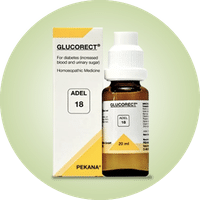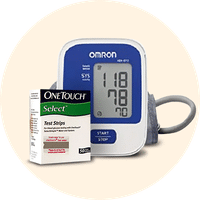Rs.209for 1 strip(s) (15 capsules each)
food interaction for Insumin Plus
alcohol interaction for Insumin Plus
pregnancy interaction for Insumin Plus
lactation interaction for Insumin Plus
food
alcohol
pregnancy
lactation
Insumin Plus Capsule may be taken with or without food, but it is better to take it at a fixed time.
None
None
CAUTION
It is not known whether it is safe to consume alcohol with Insumin Plus Capsule. Please consult your doctor.
CONSULT YOUR DOCTOR
Information regarding the use of Insumin Plus Capsule during pregnancy is not available. Please consult your doctor.
CONSULT YOUR DOCTOR
Insumin Plus Capsule is safe to use during breastfeeding. Human studies suggest that the drug does not pass into the breastmilk in a significant amount and is not harmful to the baby.
SAFE IF PRESCRIBED
SALT INFORMATION FOR Insumin Plus
Methylcobalamin(1500mcg)
Uses
Methylcobalamin is used in vitamin B12 deficiency.
How it works
Methylcobalamin is a form of vitamin B12 that restores its level in the body thereby helping in treating certain anemias and nerve problems.
Common side effects
Decreased appetite, Diarrhea, Nausea, Rash
Vitamin B6 (Pyridoxine)(5mg)
Uses
Vitamin B6 (Pyridoxine) is used in the treatment of nutritional deficiencies.
How it works
Vitamin B6 (Pyridoxine) provides essential nutrients.
Common side effects
Burning sensation, Tightness sensation, Headache, Nausea, Sleepiness, Upset stomach, Paresthesia (tingling or pricking sensation)
Benfotiamine(50mg)
Uses
Benfotiamine is used in the treatment of nutritional deficiencies.
How it works
Benfotiamine provides essential nutrients.
Common side effects
Allergic reaction, Gastrointestinal disorder, Nausea
Alpha Lipoic Acid(200mg)
Uses
Alpha Lipoic Acid is used in nutritional deficiencies.
How it works
Alpha lipoic acid acts as a potent antioxidant (substance that protects against cell damage) by neutralizing the free radicals (waste products formed in the body during energy production) such as reactive oxygen and nitrogen species. Further, it initiates natural antioxidant processes in the body. It also maintains the levels of Vitamin E and Vitamin C in the body.
.Common side effects
Nausea, Abdominal pain, Allergic reaction, Diarrhea, Vertigo, Vomiting
Folic Acid(5mg)
Uses
Folic Acid is used in the treatment of anemia due to folic acid deficiency, iron deficiency anemia and anemia due to chronic kidney disease.
How it works
Folic Acid is a form of vitamin B. It plays a vital role in the formation of red blood cells, which carry oxygen throughout the body. It is also essential in pregnancy due to its role in the development of the unborn baby's brain and spinal cord.
Common side effects
No common side effects seen
Biotin(5mg)
Uses
Biotin is used in the treatment of nutritional deficiencies.
How it works
Biotin is a form of vitamin B that provides essential nutrients.
Common side effects
No common side effects seen
SUBSTITUTES FOR Insumin Plus
3 Substitutes
3 Substitutes
Sorted By
 Rs. 160pay 13% more per Capsule
Rs. 160pay 13% more per Capsule Rs. 174.50pay 18% more per Capsule
Rs. 174.50pay 18% more per Capsule Rs. 190pay 34% more per Capsule
Rs. 190pay 34% more per Capsule
Expert advice FOR Insumin Plus
- Methylcobalamin helps replenish vitamin B12 level in your body.
- This further helps in regeneration of damaged nerves in the body.
- Avoid or limit alcohol consumption while taking this medication.
- Inform your doctor if you are pregnant, planning to conceive or breastfeeding.
- Do not stop taking the medication even if your symptoms improve. Take it as per the dose and duration prescribed by your doctor.
Frequently asked questions FOR Insumin Plus
Methylcobalamin
Q. What is Methylcobalamin?
Methylcobalamin contains vitamin B12. Vitamin B12 is an essential nutrient which is required by the body to make red blood cells and maintain a healthy nervous system. It is also important for releasing energy from food and using vitamin B11 (folic acid).
Q. Why can’t I get sufficient vitamin B12 from my diet?
You can get vitamin B12 from sources like meat, fish, eggs and dairy products. While people who are vegetarian or vegan may not get Vitamin B12 as it is not found naturally in foods such as fruits, vegetables and grains. Therefore, deficiency of Vitamin B12 is usually noticed in vegetarians or vegans.
Q. What happens if I have vitamin B12 deficiency?
Deficiency of vitamin B12 may cause tiredness, weakness, constipation, loss of appetite, weight loss and megaloblastic anemia (a condition when red blood cells become larger in size than normal). It may also lead to nerve problems such as numbness and tingling in the hands and feet. Other symptoms of vitamin B12 deficiency may include problems with balance, depression, confusion, dementia, poor memory and soreness of the mouth or tongue.
Vitamin B6 (Pyridoxine)
Benfotiamine
Q. What is Benfotiamine?
Benfotiamine is a dietary supplement of thiamine. It is also known as Vitamin B1. The medicine is used in the treatment of low levels of thiamine in the body. It protects the body from conditions which are caused due to low levels of thiamine such as heart, brain and nerve disorders.
Q. What does Benfotiamine do?
Benfotiamine contains vitamin B1. This vitamin is needed to process carbohydrates, fat and protein in the body. Our body requires vitamin B1 to form the fuel the body runs on i.e., adenosine triphosphate (ATP). Benfotiamine provides the necessary dose of vitamin B1 which is used by nerve cells in order to function normally.
Q. Who all are more likely to have deficiency of vitamin B1?
The levels of vitamin B1 in our body decline with age, irrespective of medical condition. Deficiency is most commonly found in alcoholics, people with malabsorption conditions, and those eating a very poor diet. It is also common in children with congenital heart disease. Individuals undergoing regular kidney dialysis may develop severe vitamin B1 deficiency, which can result in potentially fatal complications. So, it is advisable that persons receiving dialysis should discuss the need for the use of Benfotiamine with their physician.
Alpha Lipoic Acid
Q. Is Alpha Lipoic Acid a vitamin?
No, Alpha Lipoic Acid is not a vitamin
Q. Is Alpha Lipoic Acid an amino acid?
No, Alpha Lipoic Acid is not an amino acid
Q. Is Alpha Lipoic Acid natural?
Yes, Alpha Lipoic Acid is natural as it is synthesized in the human body, and in a wide variety of foods from plant and animal source
Folic Acid
Q. Is it ok to take Folic Acid when not pregnant?
Usually, folic acid requirements are met from the diet and therefore additional supplements are not required. In general, Folic Acid is recommended only when you have a deficiency of folic acid. However, Folic Acid is advised to women who are pregnant and who want to conceive. The medicine should be taken at least 4 weeks before pregnancy and should continue its use up to 3 months of pregnancy. Consult your doctor if not sure.
Q. Can Folic Acid cause weight gain?
Animal studies on Folic Acid suggest that taking the medicine in excess along with a high-fat diet may lead to weight gain and fat accumulation. But this weight gain was not evident when taken along with a normal or low-fat diet, even with excess Folic Acid. In humans, similar studies have not been conducted and therefore knowledge regarding weight gain is lacking. Therefore, if you are on Folic Acid eat a low-fat meal to be on the safer side.
Q. How long does Folic Acid take to work?
Folic Acid usually starts working within a few hours of taking it. If you are taking it for iron deficiency anemia, you may start feeling better after a few weeks of taking it. In case you are taking it during pregnancy, you may not notice any difference but this does not mean that the dose is not working. Continue taking Folic Acid for the duration recommended by your doctor.
Biotin
Q. What is Biotin? What is it used for?
Biotin consists of vitamin B7 which is commonly known as biotin. It is a water-soluble, B-complex vitamin that contributes to healthy metabolic, nerve, digestive and cardiovascular functions. Biotin helps to provide vitamin B7 which is essential for metabolizing fats and carbohydrates. This also helps strengthen hair, increase nail thickness and prevent split ends and thinning hair.
Q. What causes the deficiency of biotin?
The deficiency of biotin is extremely rare. However, it may be seen commonly in cases of inadequate dietary intake, alcoholism, smoking or a genetic disorder, such as Crohn’s disease, that affects biotin metabolism. Long-term antibiotic usage has also been associated with biotin deficiency.
Q. What are the symptoms of biotin deficiency?
Symptoms of a biotin deficiency include skin rashes, brittle and thinning hair and nails, seborrheic dermatitis and alopecia (hair loss). If you experience any of these, consult your doctor.



















